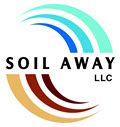
Five Ways to Avoid House Flooding and Water Damage from Broken Appliances
The majority of household flooding and water damage is directly related to failed plumbing and broken appliances. Something as simple as a water supply line on a refrigerator can cause tens-of-thousands of dollars of damage to a kitchen. So what can you do to avoid flooding and water damage from broken appliances? Below we list five ways to help prevent and minimize damages at your home.
1. Inspect appliance hoses and connections
Make a list of all your household appliances that interact with water. This includes the following: dishwasher, toilet, washing machine and refrigerator (with ice maker or water dispenser). Each one of these appliances utilizes hoses and connections to move water in or out of the apparatus. Make it a quarterly habit to inspect these hoses and connections. These can eventually wear out. Look for cracking, bubbling, swelling, dripping and fraying. Replace the hoses immediately after deterioration is identified. This simple step can help prevent a failing hose from bursting and flooding your house.
2. Replace rubber with steel
Braided stainless steel hoses are typically more reliable than rubber hoses. Rubber hoses are more susceptible to wear-and-tear. Braided steel hoses are stronger and have a longer lifespan. You can purchase these hoses at a local hardware or home improvement store. If you are not comfortable swapping out the units, consult the help of a licensed plumber.
3. Be home when running appliances
The worst flooding and water damage from broken appliances occurs when no one is home. Water can saturate a structure for hours on end. The faster you can deal with the leak the less damaging the flood will be. That is why it is so important to for you to operate your major appliances while you are home. This tip is specific to dishwashers and washing machines. Too many people run their laundry and then leave the property. This is asking for trouble. This tip also applies to your dryer. Dryer fires are a major concern and you want to me home to monitor the machine’s operation.
4. Locate your water shutoff
When all else fails, hit the power button! That’s what we do with our computers right? That may or may not be good advice for your PC, but it can apply to your home’s water supply. If a broken appliance is spewing water you have options. Turning off the main water supply for your home will stop the flow of water from the machine. We recommend identifying the home’s main water shutoff before an emergency flood happens.
5. Know who to call to mitigate water damage
When flooding and water damage cleanup is just too much to handle, you may need to call damage mitigation professionals. Water damage restoration companies can provide emergency services to clean and dry your home efficiently. It is advisable to build a relationship with one of these contractors before something happens. If you submit an insurance claim for the cleanup services, know that you can choose the company you want to perform the services.
Soil-Away: Flood and water damage cleanup professionals serving New Hampshire (NH)
Soil-Away is NH’s premier flood and water damage cleanup company. The damage restoration experts at Soil-Away are ready to serve 24/7 for your flood cleanup emergency. The company has been in business since 1990 and is family owned/operated. Soil-Away will work with you and your insurance company for any claim situation. Contact the flood and water damage professionals at Soil-Away today: 603-641-6555.

